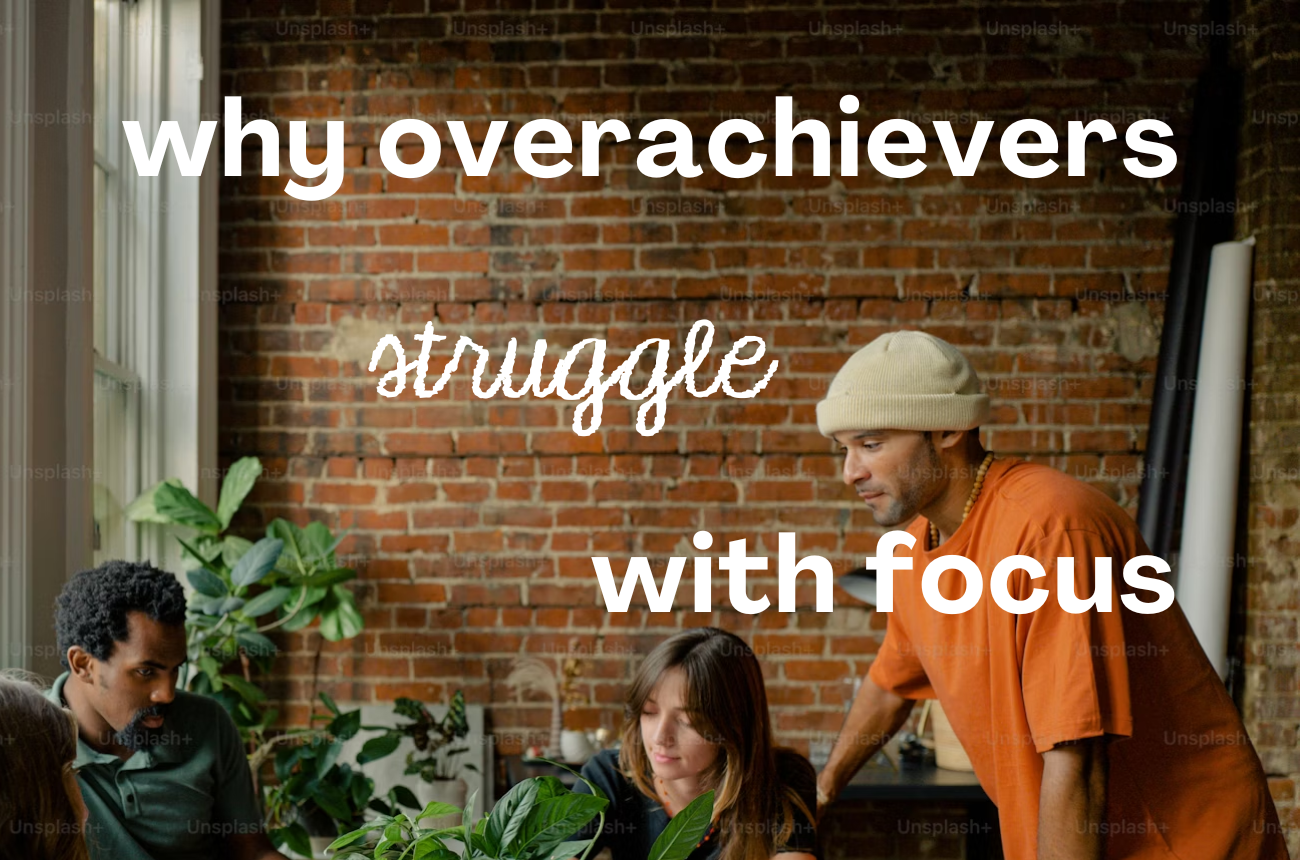You’re ambitious. Driven. You’ve probably been told you’re “doing great” even when your brain feels scattered and your attention is nowhere to be found. If you’re someone who thrives on goals, gold stars, and high performance—you might also be someone who quietly battles focus fatigue.
But here’s the twist: overachievers often struggle with focus not because they aren’t trying hard enough, but because they’re trying too hard, too often.
Let’s talk about what’s really going on—and how to recover your focus in a way that’s kind, sustainable, and rooted in mindfulness rather than pressure.
The Hidden Cost of Being “Always On”
Overachievers tend to equate productivity with worth. They power through tired days, multitask to a fault, and often ignore their body’s signals in service of “getting things done.” On paper? It looks impressive. But behind the scenes?
- Chronic low-level stress
- Mental fatigue masked as “busy brain”
- Inability to rest without guilt
- Difficulty staying focused on one thing at a time
When you’re constantly aiming for excellence, it’s easy to fall into a hyperactive mental loop—planning, overthinking, self-correcting, anticipating. It doesn’t leave much space for presence.
Why Focus Feels Slippery for High Performers
- Perfectionism fragments attention
- When your brain is trying to control every detail, it’s hard to stay grounded in a single task. You second-guess, over-edit, or delay action altogether.
- Overbooking leaves no room for flow
- Deep focus requires margin. But overachievers often fill every block of time, leaving no breathing room for creativity, reflection, or rest.
- External validation becomes the driver
- When you’re constantly performing for outcomes (praise, promotions, likes), your attention splinters toward what might gain approval—rather than what matters most.
- Rest gets deprioritized
- Even rest becomes “productive”—podcasts on walks, personal development books before bed, meditation with performance goals. True unstructured mental rest becomes rare.
Mindful Recovery Starts with Reframing Focus
Instead of treating focus like something you force, try thinking of it as something you create space for.
Focus isn’t a badge of honor. It’s a natural state your brain enters when the conditions are right. For overachievers, that means learning to:
- Let go of multitasking in favor of monotasking
- Value depth over speed
- Build structure that includes rest, not just hustle
- Release guilt around slowing down
It’s not about doing less—it’s about being present for what you’re doing.
Mindful Tools That Actually Help
Here are gentle, brain-friendly practices to reclaim your focus without burnout:
1. Time-blocking with a soft edge
Instead of rigid hour-by-hour schedules, try energy-based blocks (morning deep work, midday admin, afternoon creative). Build buffer zones between tasks.
2. Use ambient sound to anchor focus
Low-stimulation audio—like soft piano, brown noise, or minimalist electronic—can help cue your brain into flow without overstimulating it.
Try:
- Focus playlists with no lyrics
- 25-minute Pomodoro-style sprints with silence or subtle sound
- End-of-day wind-down music to signal closure
3. The ‘One Thing’ Practice
Each morning, ask: What’s the one thing that matters most today? Write it down. Return to it when your attention wanders. One intention, one anchor.
4. Interrupt the urgency loop
Notice when you feel panicked or behind. Pause. Breathe. Ask: What’s actually urgent? What can wait?
Overachievers often carry invisible deadlines that don’t exist. Mindfulness helps you reality-check those stories.
5. Rest before you need it
Schedule breaks before you're exhausted. A 10-minute walk, a non-productive lunch, or a power nap can prevent the crash that leads to full burnout.
A Loving Reminder: You Don’t Have to Earn Stillness
You’re allowed to rest before you’ve crossed off every box. You’re allowed to focus on one thing even if your brain tells you to juggle five. And you’re allowed to be—not just do.
Mindful focus isn’t about becoming a better machine. It’s about becoming a more present, grounded version of yourself. That version of you? They’re still ambitious. Still driven. But also deeply well.

Final Thought: You Can’t Outperform Burnout
If your attention is fractured, it’s not a failure. It’s feedback.
So instead of pushing harder, start by listening inward. What would it look like to build a life that supports your focus instead of demanding it?
You might just discover that the key to focus isn’t more discipline—it’s more compassion.



.avif)